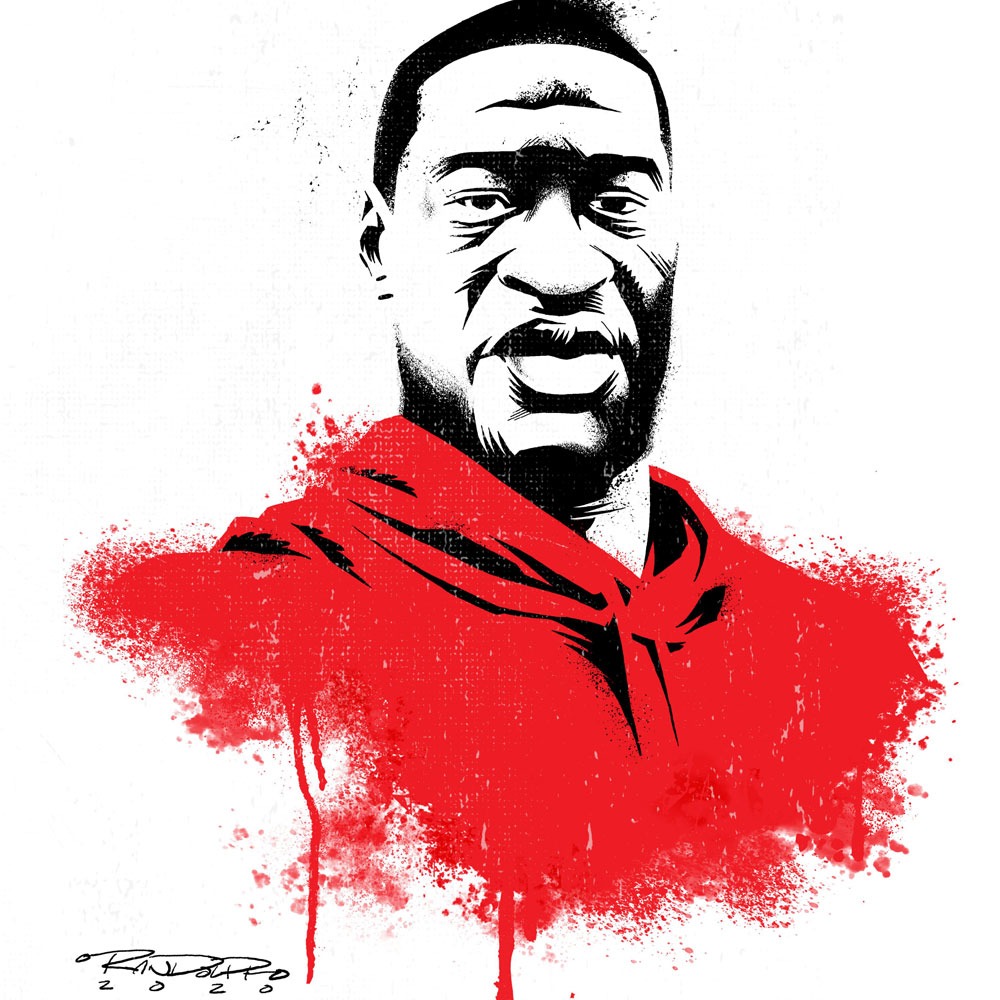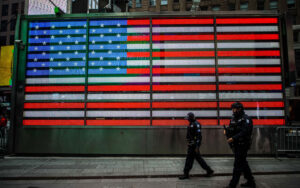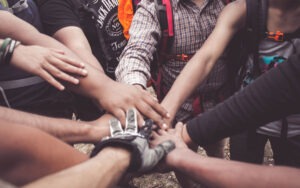
June 2, 2020; Berkeleyside
On Monday, seven days after the murder of George Floyd by a policeman in Minneapolis, an estimated 15,000 people came out for a march in Oakland, California, which has a well-deserved reputation for youth-led activism and a long history of protesting police violence against the Black community. The organizing grew out of an Instagram post from Akil Brown and Xavier Riley, both 19-year-old first-year students at Howard University and UCLA, respectively. While they cautioned there was to be “no destruction,” they were clear that this was not simply one more plea that could go unanswered.
“We are not asking for a change of heart of the people in power,” Riley wrote on Instagram. “What we’re doing is disrupting shit. We’re saying if there’s no justice, we will continue to disrupt.”
At the march, many held signs that read “defund the police” and “abolish the police,” and Riley reiterated this from the podium, where he was joined mostly by other Black youth as speakers.
“Don’t let them tell you that a few bad apples ruin the reputation of the police system,” he declared. “The police system is not a good one. They thrive on brutalizing the lower class.” This reference to class is a common part of the narrative of protestors across the country, just as it was in the Sixties and Seventies, although that element of what Dr. King, Malcolm X, and the Black Panther Party were saying then is often not brought forward today.
The young people in Oakland had many supporters that were there to do more than just lend their voices to chants:
Rick Perez, whose son, Richard “Pedie” Perez, was killed by a Richmond police in 2014, heard about the students’ march and showed up with his flatbed truck for students to use as a platform. The socialist group Speak Out Now provided a sound system. Community Ready Corps and members of other organizations volunteered to serve as marshals during the rally and march, offering to help protect the students so they could focus on expressing themselves.
Sign up for our free newsletters
Subscribe to NPQ's newsletters to have our top stories delivered directly to your inbox.
By signing up, you agree to our privacy policy and terms of use, and to receive messages from NPQ and our partners.
And, right on schedule, in a move apparently aimed at provoking and then dominating the situation, thousands of peaceful protestors all received an alert on their cell phones from the Alameda County sheriff. Oakland Mayor Libby Schaaf and her city administrator, Ed Reiskin, announced an 8 p.m. curfew, informing the young people that any violations would lead to arrests. This, again, is directed toward people protesting for their most basic human rights in a city historically known for its police violence and its community’s response, which included the inception of the national Black Panther Party for Self Defense in the late 1960s.
As the protestors moved along the two miles of road to downtown Oakland, police officers established themselves at a barrier, blocking their way. The young people changed their route and reconvened at Frank Ogawa Plaza for another rally, which broke up around 7 p.m. Some students stayed in the area, however, talking and milling around, only to face arrest and an incoming volley of gas grenades at around 7:40 p.m., charged with unlawful assembly and failure to disperse.
The city of Oakland’s response follows the domination playbook President Trump has been promoting. It is, as one of the governors has dubbed it, “foolish,” but that does not stop the narrative from the White House, which assumes the unrest in the country that he has helped bring to a head through his awkward blustering rhetoric can be stemmed by force and denigration.
Contrast that to the response of Eric Clifford, police chief of Schenectady, New York, who met and publicly knelt with young protestors in common cause. “As I took a knee,” Clifford says, “all of my officers standing behind me wearing riot gear also took a knee. I felt the emotion in the crowd, and they cheered. It was a symbolic laying down of weapons.”
But Mayor Eric Garcetti in Los Angeles did the same, even while trying to control the statements of the city’s police chief and implementing a curfew and other control-by-force measures: “The political pyromania of this moment that we see coming out of Washington right now—it’s not only not bringing us together, it is fanning the fuel of this fire.” And yesterday, in Houston, the city where George Floyd was born and raised, 60,000 people marched.
Even as demonstrations spread quickly overseas, in this country the issues being raised in demonstrations are not going to get less intense. It’s starkly clear who is currently unemployed, in danger of being evicted, and generally marginalized. The pandemic’s patterns of destruction have shown all our economy’s—our society’s—structural fault points. That Oakland decided to use tactics of force on its young people is foolish beyond measure, creating division where there needs to be dialogue and humility.—Ruth McCambridge













